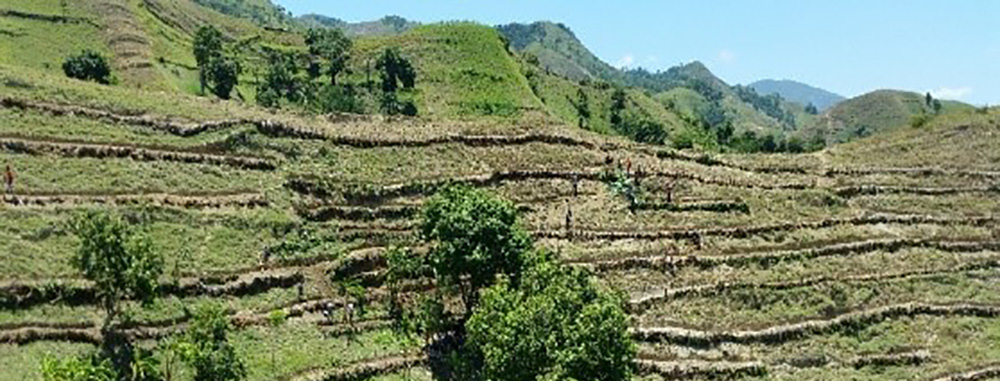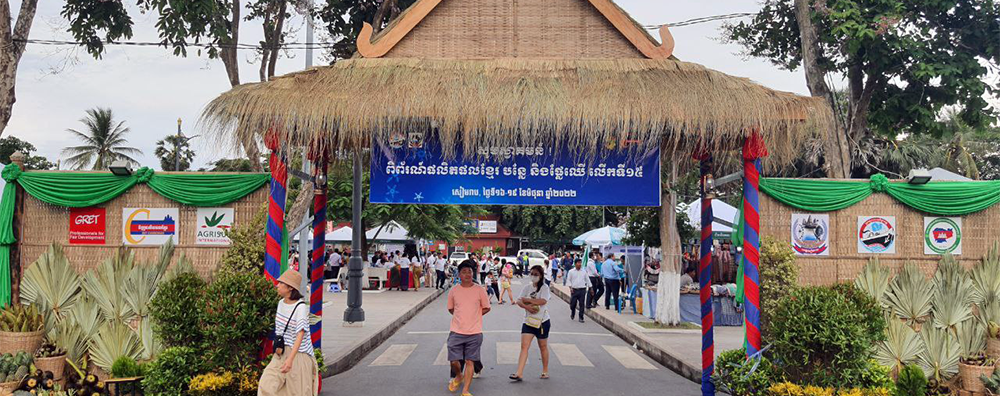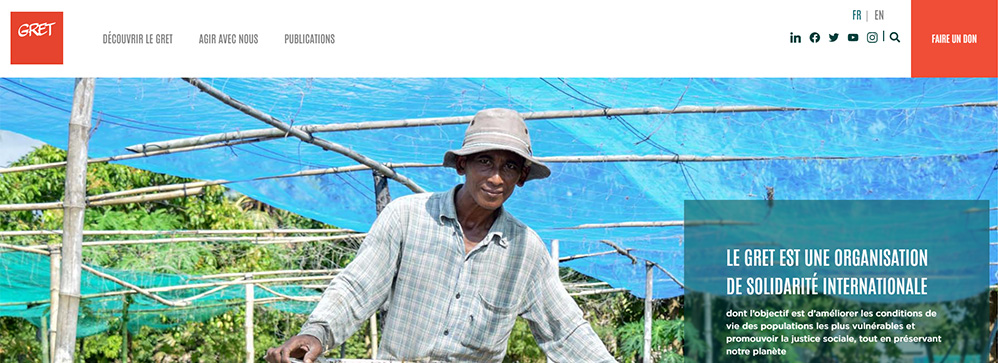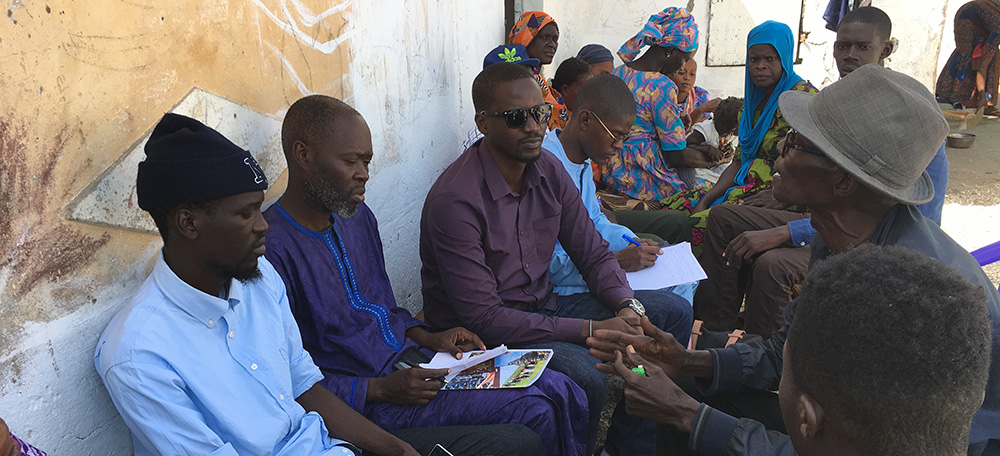The Trois Rivières watershed area in Haiti is currently experiencing a spiral of poverty. Together with numerous climate, ecological and political shocks, food and nutrition insecurity is increasing in this region, despite its strong agricultural potential. This is the context in which the Pasan-Apros project is taking an integrated territorial approach by deploying its activities to reverse the trend.
In 2015, a report produced by the Integrated Food Security Phase Classification (IPC) showed that 70 % of the Haitian population were experiencing chronic food insecurity, and 20 % of the population in the North-West and Haut-Artibonite regions were experiencing severe chronic food insecurity. It is unlikely that these figures have evolved positively, given the recent shocks suffered by these two regions, in particular recurrent drought (2015-2016), Hurricane Irma (September 2017), cyclone Matthew (May 2017), significant socio-political unrest and the Covid-19 pandemic.
In these zones, poor households have very low incomes, mainly generated by agricultural activities. In terms of production, access to inputs (seeds, young plants, fertilisers) is limited because of availability problems, lack of money and poor access to credit for households. Access to water is also a major problem throughout the Trois Rivières watershed.
Pasan-Apros, a project to strengthen rural households’ resilience
Conducted by GRET in partnership with the Association of people originally from Grand Plaine (AOG), Action Against Hunger (ACF), Protos – Join for Water and the Organisation for integrated rural development in the Nord-West (Odrino), the Pasan-Apros project (Project for the improvement of food and nutrition security and access to social protection) is seeking to improve the resilience of households in the Trois Rivières watershed to cope with climate change by strengthening governance of food and nutrition security, long-term development of sustainable agricultural value chains and securing of natural resources by facilitating access to a sustainable social protection system valorising local agricultural production.
The Pasan-Apros project, launched at the end of 2018, is part of the multisectoral food and nutrition security programme (MSFAN) funded by the European Union and being implemented in the North-West and Haut-Artibonite regions. The MSFAN brings together various stakeholders from the food and nutrition security sector in Haiti, via four ministries – the Ministry of Agriculture, Natural Resources and Rural Development, the Ministry of Social Affairs and Labour, the Ministry of Public Health and the Population, and the Ministry of Planning and External Cooperation – and departmental stakeholders.
An integrated territorial approach
The project is being implemented in six sub-watersheds, including several agroecological zones enabling irrigated agriculture, livestock farming and agroforestry. This diversification makes these watersheds conducive to the implementation of integrated activities that can develop solutions to respond to vulnerable households’ food and nutrition needs, while making plant and animal products available over a longer period of the year. To do this, the project teams are developing an approach focused on value chains, selecting priority products (manioc, groundnut, banana, etc.) and providing support to each link in the chain.
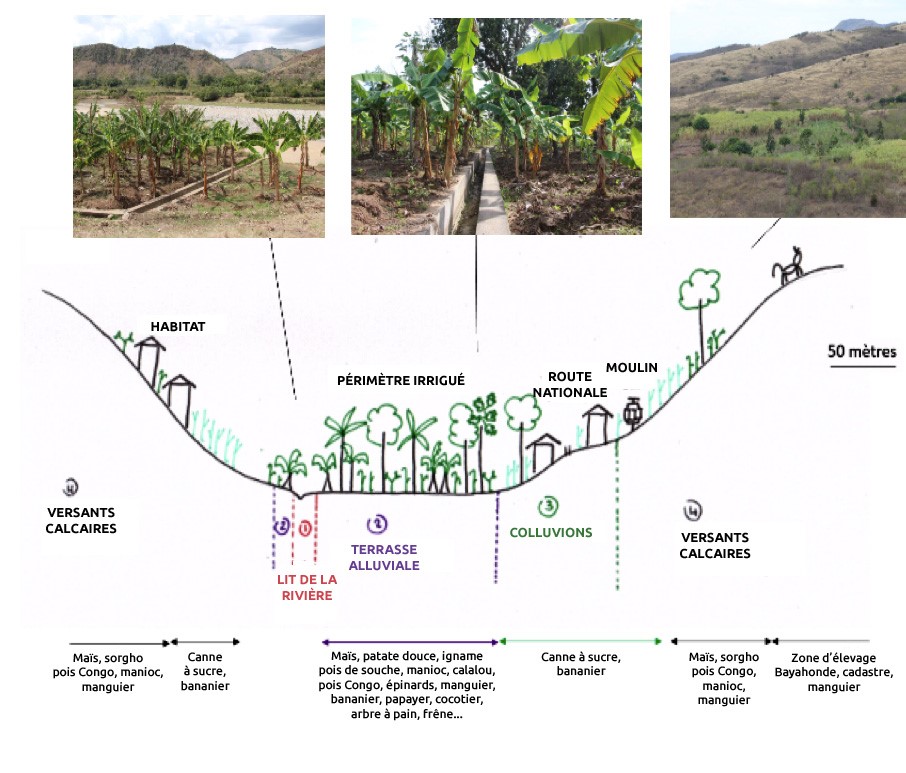
With a view to strengthening agricultural production and introducing new high added-value crops, six farmer field schools were set up with particular focus on combining crops such as banana and vegetables. In addition, a seed credit system was also created to support vulnerable households to acquire pigeon pea, corn or black bean seeds in order to sow their arable land.
Lastly, 1,848 vulnerable households accessed a social protection system based on monthly transfer of food coupons, which had a significant effect on demand and sale of local agricultural products in the sub-watersheds. To coordinate these sales, almost 15 commercial partnership agreements were signed between vendors and producers in the Trois Rivières watershed for the second semester of 2021.

Supporting the development of watersheds over the long term
To support this approach increasing the production of agricultural goods that respect environmental standards, the project teams are also conducting activities for the development and reforestation of six sub-watersheds. For example, in the Acul watershed, almost six hectares of bare land were developed by planting 900 fruit tree seedlings, 1,200 moringa seedlings and 2,400 forest tree seedlings in terraces. Following an evaluation conducted one year later, observations showed that more than 95 % of the seedlings had adapted well. In addition, the six irrigated perimeters linked to the project will be rehabilitated and revitalised via training of the irrigator association members for better social management of irrigation water.
Lastly, in partnership with the AOG organisation, a system for distribution and redistribution of breeding cattle and goats to vulnerable households was put in place, with a view to strengthening households’ livelihoods and developing their savings. 100 local breed goats and 10 breed cattle were distributed to vulnerable households, who in turn will give the first young animals born to the monitoring committee to enable other households to benefit from this programme. The committee was trained to ensure continuity of the system after the end of the project.
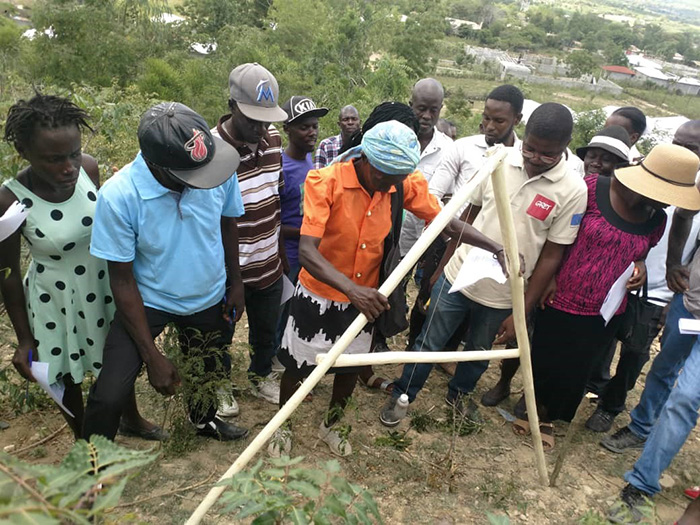
Some of the Pasan-Apros project’s socio-economic and environmental impacts
Thanks to this integrated approach, at both physical and institutional level, the Pasan-Apros project made it possible to:
- create or strengthen interpersonal connections and social cohesion;
- develop local stakeholders’ capacity to identify and analyse the problems faced by their communities in agriculture by using the “problem tree” tool;
- strengthen food and nutrition security via several levers for action (agroforestry, rehabilitation of units for storage and processing of agricultural products, social protection safety nets and livestock breeding systems);
- conserve natural resources (protecting land from erosion, often caused by rainwater, implementing committees to manage sub-watersheds);
- increase surfaces for agricultural use via actions aimed at preventing soil degradation;
- increase plant cover by developing watersheds and supporting vulnerable households to implement vegetated plots;
- increase and diversify vulnerable households’ sources of income thanks to several levers of action (cash for work, establishment of commercial partnerships, revitalisation of irrigated plots, etc.);
- conduct a study on agricultural value chains and a diagnosis of integrated water resources management (IWRM).
The content of this article is the sole responsibility of GRET and can in no way be considered as reflecting the opinion of the European Union.

